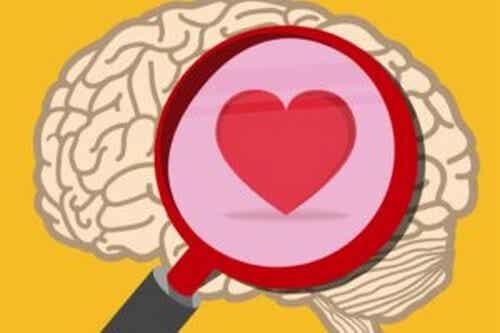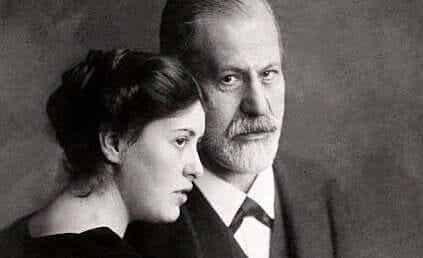The analysis of the emotions that accompany an inner crisis gives us useful information to get out of it. The fabric of resilience often depends on good management of these personal realities.

Written and verified by the psychologist GetPersonalGrowth.
Last update: 15 November 2021
The five emotions that accompany a personal crisis can be paralyzing. This sudden and unexpected rupture of the present often plunges us into a series of states for which we are not always psychologically prepared. Pain, anguish, uncertainty, fear… Understanding the role played by our inner realities can help us overcome these moments with more effective tools.
How do you do it though? We know well that during an existential crisis there is little room for reflection and for that mental clarity necessary to make good decisions. When we are faced with adversity, fear increases; and it is evolutionarily normal, even predictable.
We must remember that the brain is still governed by extremely primitive impulses and defense mechanisms. So, when it perceives or is aware of a threat or a breakdown in our internal homeostasis, a typical response emerges: escape. Fear keeps everything in check and we hardly become able to connect in a balanced or thoughtful way.
It is worth dwelling for a moment on the meaning of the word "crisis". This term derives from the Greek and contains different meanings that converge on the same idea: decision, judgment, resolution, discernment. This shows us a simple truth: we are obliged to overcome our fears, to transform them in order to take alternative paths and thus begin a new phase. But first of all, it is necessary to know the anatomy of the seizure and the emotions that accompany it.
"The crisis occurs when the old is not yet dead and the new is not yet born."
- Bertolt Brecht -
The five emotions of a personal crisis
Albert Einstein said that without crisis there is no merit. And it is precisely in these moments that the best of us emerges, because in every crisis the wind is like a caress that encourages us. It may seem very poetic, and the truth is that although these ideas stimulate and motivate us, at the same time it is not easy to face moments full of instability, uncertainty and fear.
We also know that not all crises are the same. Some are blatant threats to our psychological and / or physical equilibrium (Goldenberg. 1983). Others are unexpected events that generate change and force us to provide an answer (Rosenbaun & Calhoun, 1977).
On the other hand, the concept of "crisis" is very complex and encompasses many realities. This is what underlines a research conducted by Donald Coates, Katherine Eastham and Federico Allodi. These temporary states of alteration and challenge have more than one origin and affect us, whatever our age. In many cases, moreover, it is a matter of the convergence of similar interior realities.
What emotions accompany a personal crisis?
1. Fear (I'm not ready for this, I'm afraid)
Fear is an emotion regulated by the amygdala. We can consider this brain structure as an emotional sentinel: it initiates this reaction as soon as it detects a threat or an unexpected event that upsets our balance.
An emotional breakup, the loss of a job, a friendship, a family member or leaving behind something or someone important to us instantly opens the door to this overwhelming emotion: fear.
2. Anger (why does it happen to me?)
Sometimes more than outright anger, we feel indignation and bewilderment. Those who find themselves in the midst of a crisis never stop wondering "why me?".
Feeling this emotion is completely normal. We tend to experience such an event with a certain anger, we do not want to accept it; we even feel misunderstood. Acceptance will gradually come, but first we must cross the path of the "flames of anger".
3. Resistance to change (I feel helpless, I can't do anything)
Another emotion that accompanies an inner crisis at its onset is the sense of helplessness. In addition to the fear and the feeling of not being understood, there is the idea of not being able to change the situation. “She left me, the world is over for me, I will never be happy again”.
“When you lose a loved one, the world stops with no possibility of return, everything stops”. These are recurring phrases in the first stages of a crisis. The best thing to do, in this case, is not to cling to such thoughts, not to make that state chronic. We need to get help to set a change, adopting new perspectives.
4. Shame, discomfort (I want to isolate myself from everything and everyone)
Some people feel ashamed, others feel uncomfortable or rejection of everything and everyone. It is normal to feel the desire to withdraw a little, move away from the immediate reality to remain face to face with yourself.
Practicing introspection and recollection is good, but for a limited time. It helps to rearrange ideas, to start an acceptance process. However, little by little it is important to begin to reopen emotionally to others.
5. Emotional pain (I feel hurt, distressed, paralyzed)
How many times have we heard that pain is part of life! But when we live it on our skin, we feel it as unfair, unexpected, too great to have the strength to accept it.
The emotions that make up emotional pain also accompany a personal crisis. I am sadness, anguish, despair: a wound that hurts every moment and that we don't know how to calm.
Beyond what we might think, accept and recognize the existence of this emotional pain, listening to it helps us to take the right path of psychological facing. Letting all these inner states gradually flow will help soothe the suffering and inspire us to seek new ways out.
The five emotions of a personal crisis, an inevitable path
Understanding and welcoming all the emotions that accompany an inner crisis allows us to strengthen the muscle of resilience. It is not an easy or quick process. A crisis cannot be resolved in a week or a month. It is inevitable that you have to take a painful path.
But with each stage, our skin gets tougher. The heart calms down and the mind becomes more flexible, receptive and creative. Soon we will find not only relief, but also new and wonderful ways.


























